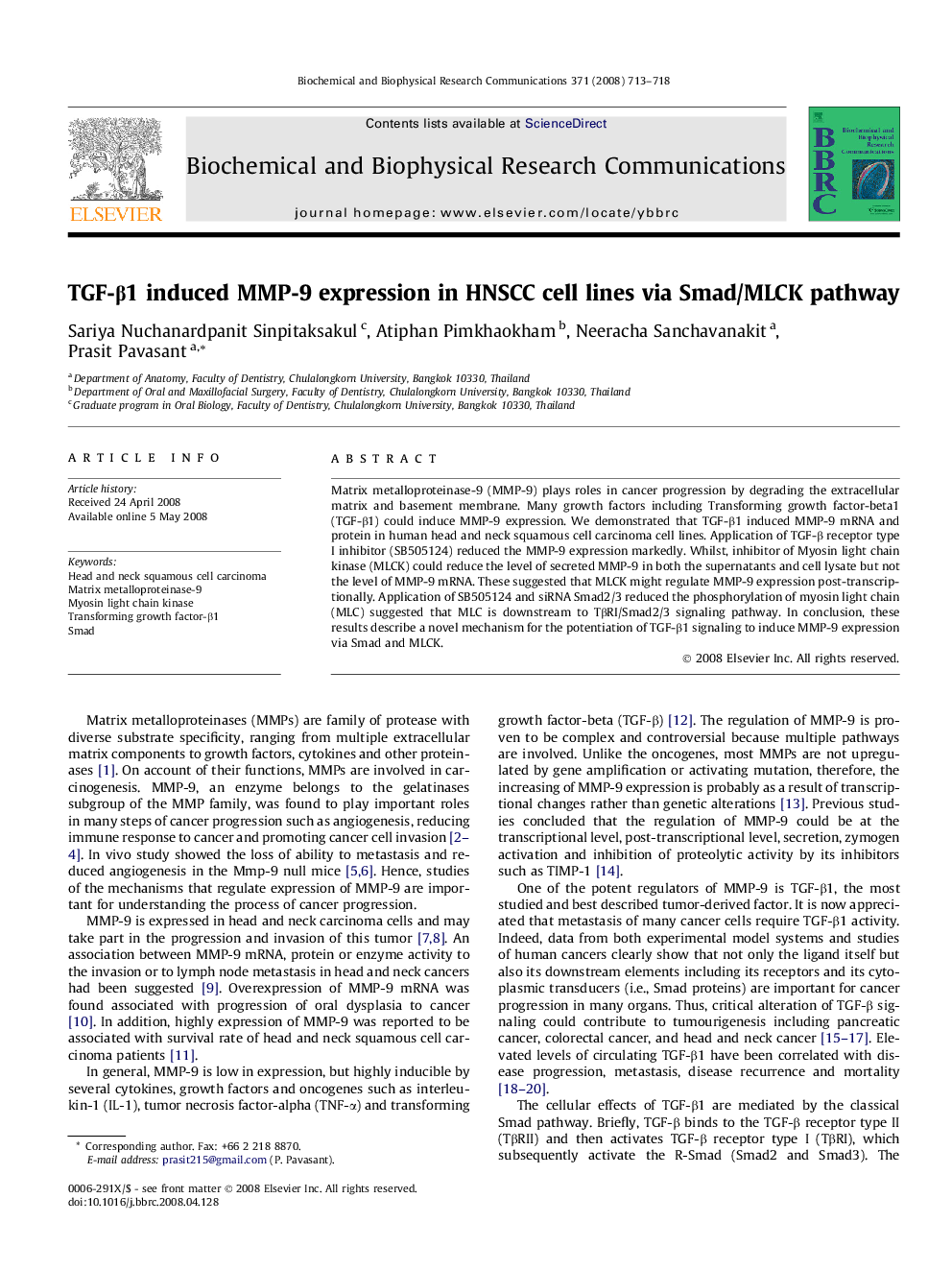| Article ID | Journal | Published Year | Pages | File Type |
|---|---|---|---|---|
| 1935177 | Biochemical and Biophysical Research Communications | 2008 | 6 Pages |
Matrix metalloproteinase-9 (MMP-9) plays roles in cancer progression by degrading the extracellular matrix and basement membrane. Many growth factors including Transforming growth factor-beta1 (TGF-β1) could induce MMP-9 expression. We demonstrated that TGF-β1 induced MMP-9 mRNA and protein in human head and neck squamous cell carcinoma cell lines. Application of TGF-β receptor type I inhibitor (SB505124) reduced the MMP-9 expression markedly. Whilst, inhibitor of Myosin light chain kinase (MLCK) could reduce the level of secreted MMP-9 in both the supernatants and cell lysate but not the level of MMP-9 mRNA. These suggested that MLCK might regulate MMP-9 expression post-transcriptionally. Application of SB505124 and siRNA Smad2/3 reduced the phosphorylation of myosin light chain (MLC) suggested that MLC is downstream to TβRI/Smad2/3 signaling pathway. In conclusion, these results describe a novel mechanism for the potentiation of TGF-β1 signaling to induce MMP-9 expression via Smad and MLCK.
